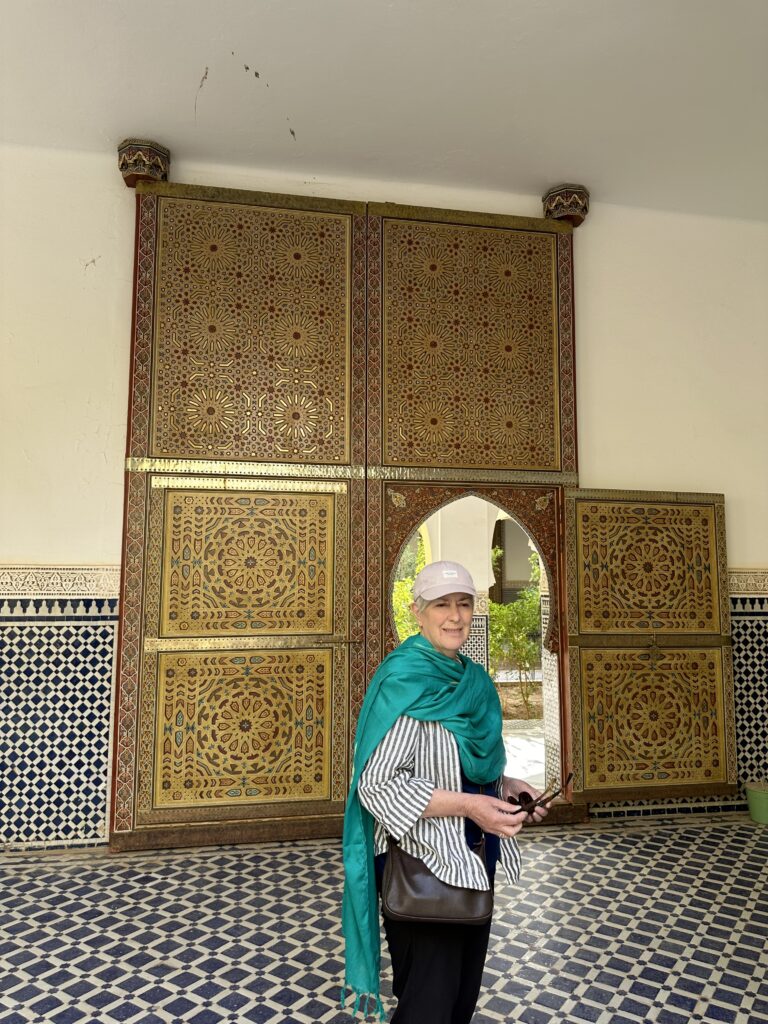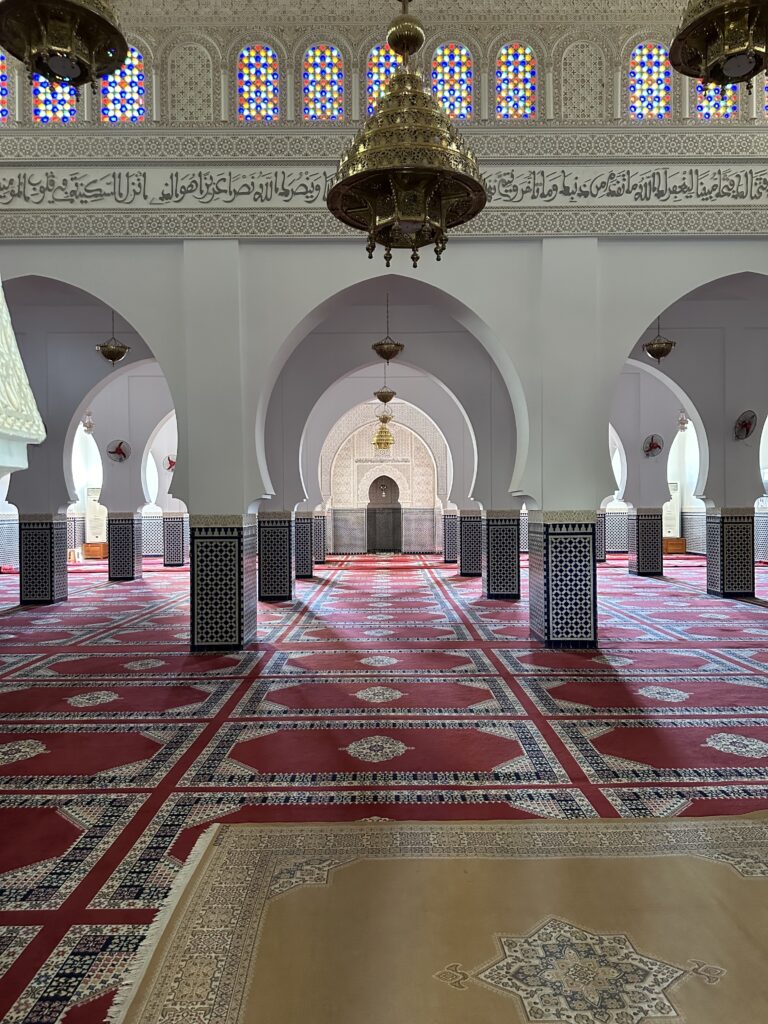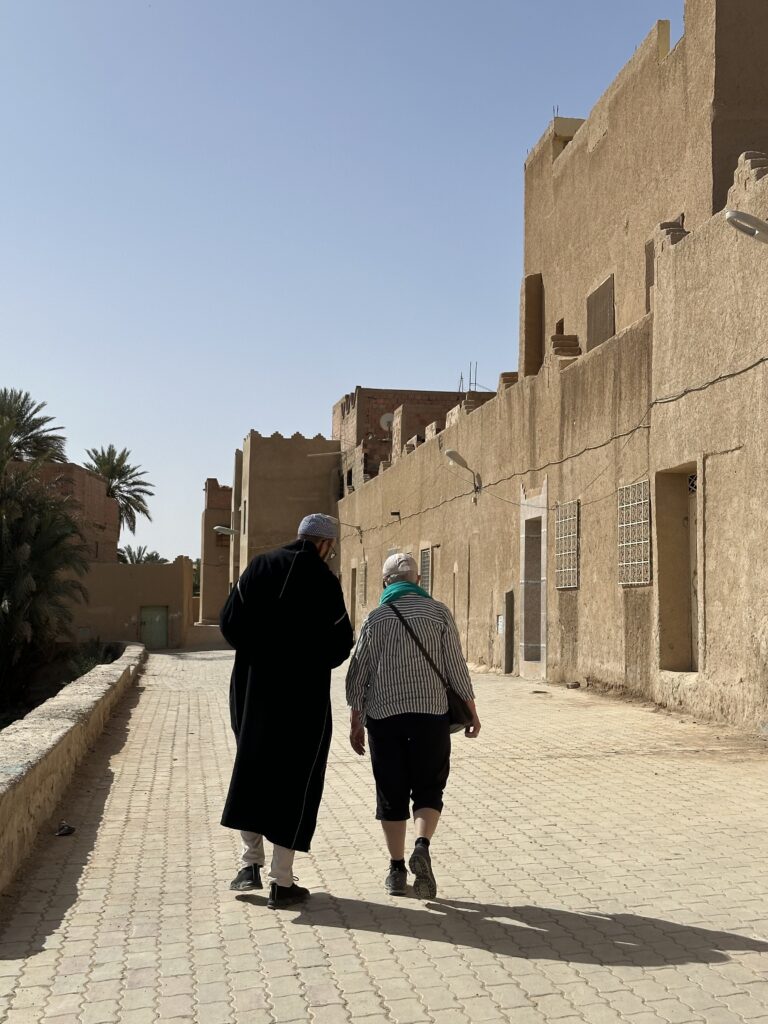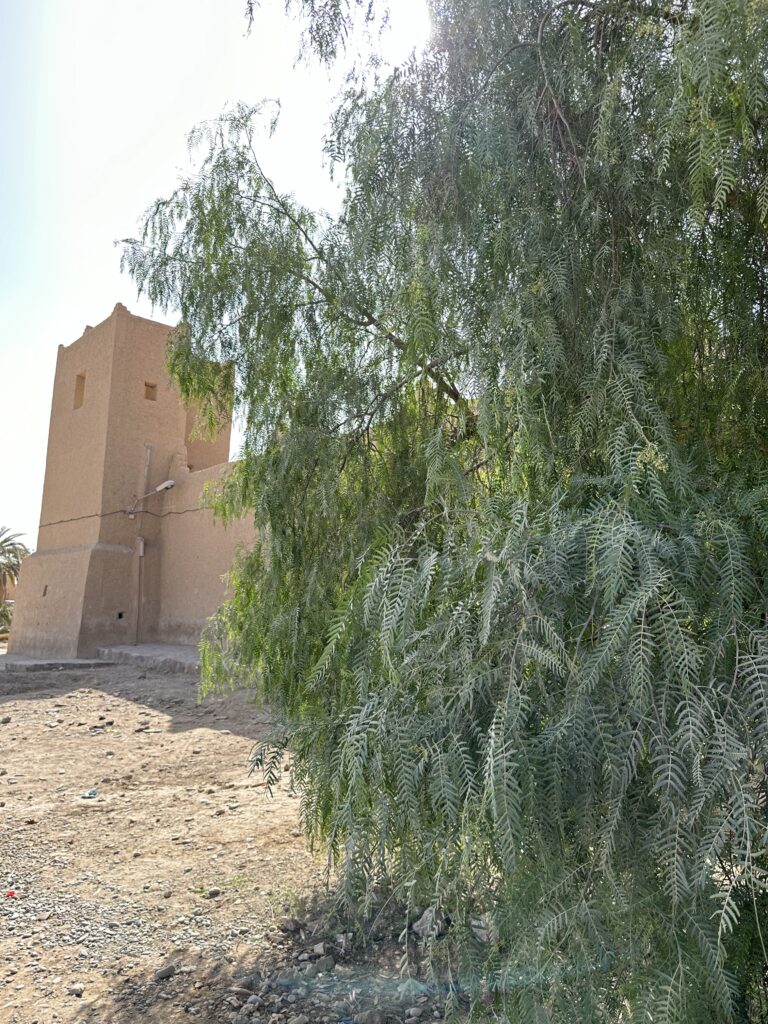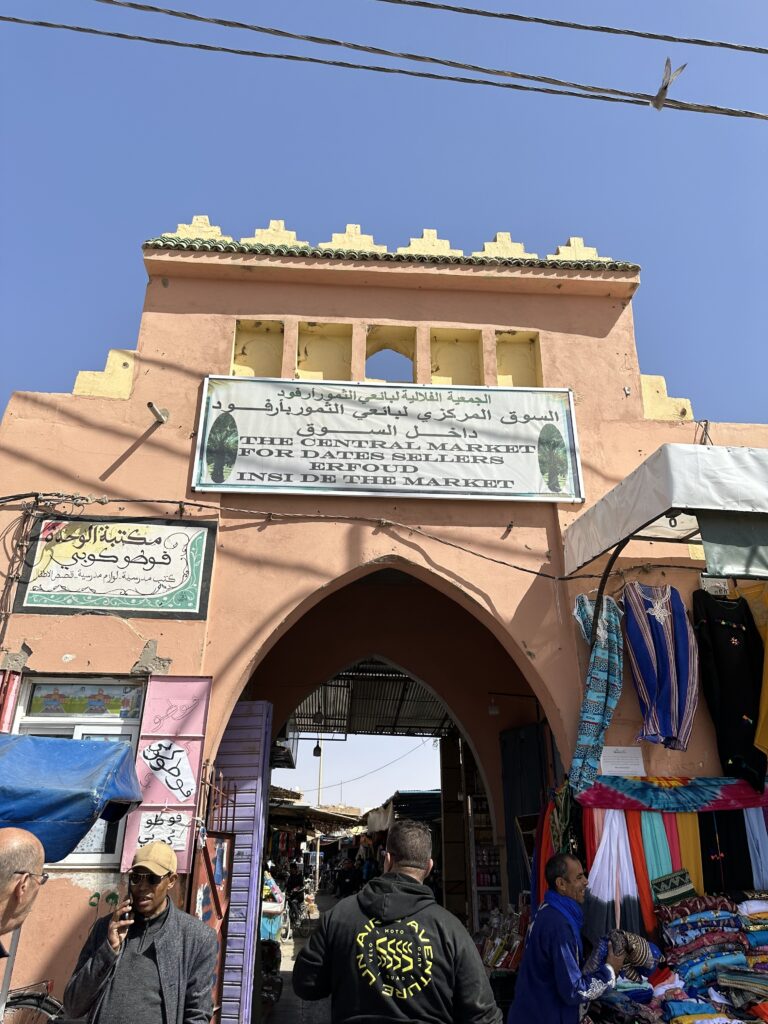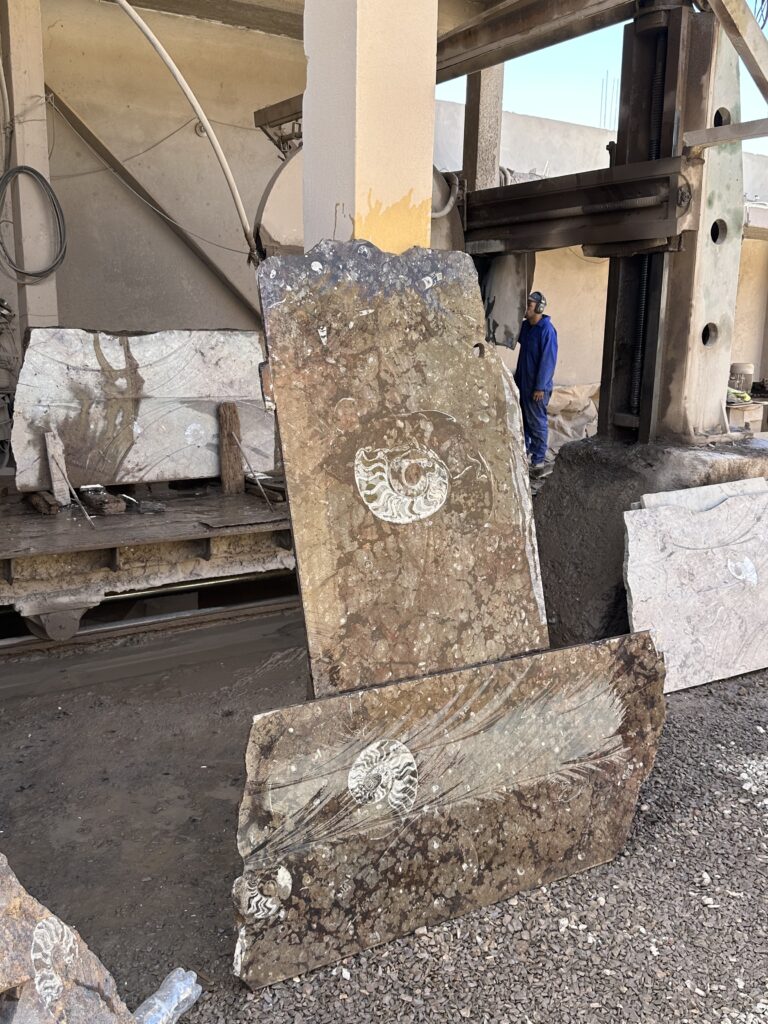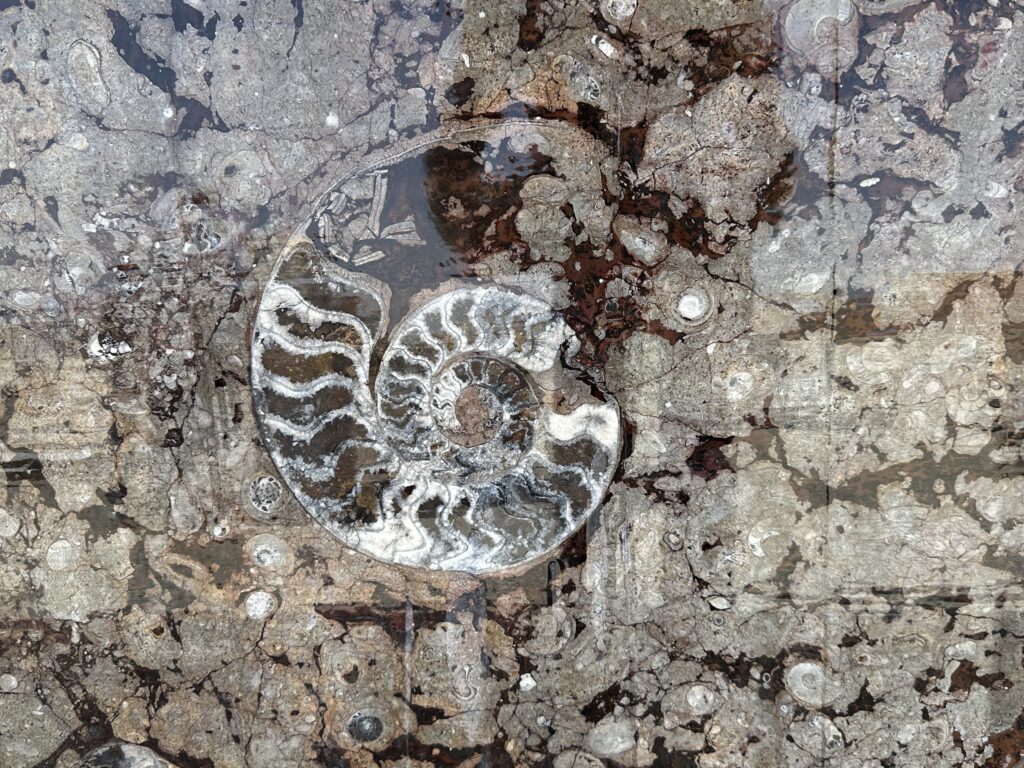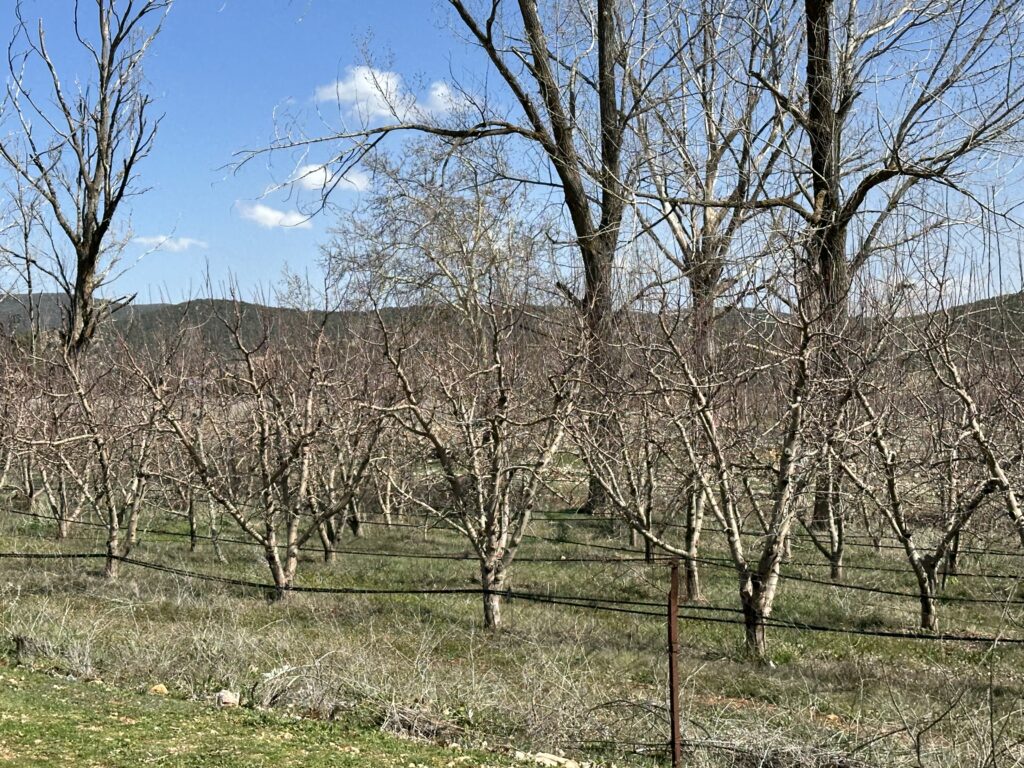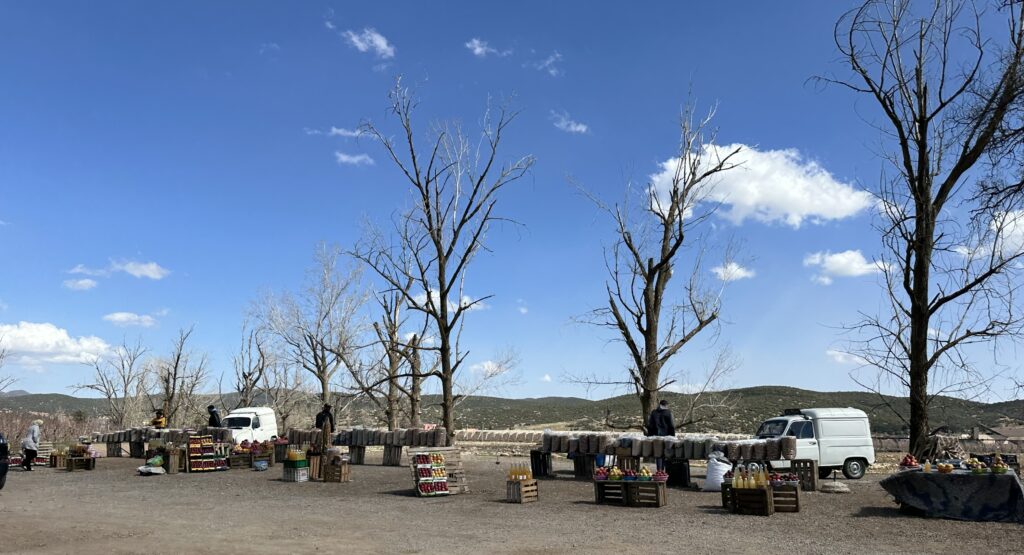After Merzouga, we stopped at Rissani for coffee on the way to visit the mausoleum of Moulay Sharif. An Arab Emir whose family claimed to be descended from the prophet Mohammed, Moulay Sharif, who died in 1659, is considered to be the founder of the Alaouite Dynasty of Morocco and a predecessor of the current King. We hired a guide to show us around the religious complex, which had been rebuilt in 1955 following a disastrous flood from the Ziz river (Oued Ziz). Our guide explained the intricacies of the restored architecture, including sophisticated tile and painted woodwork. Not being Moslem, we were unable to go inside the mosque or to see the tomb, but we could look through one of the intricately carved doors and take photos. We were then shown around the neighbouring 17thC Ksar, which still houses many families.
Next, a stop in Erfoud to sample and purchase some Medjool dates, for which the area is famous. Once the floor of a large prehistoric ocean, the region is also well known for fossils. We visited a factory where we viewed marble slabs mined from a nearby quarry that contain fish, plant and other marine fossils. The marble is used to make countertops, sinks and even sculptures, which are shipped worldwide.
Back on the road, we followed the Ziz river valley north for over 100kms, the walls of the canyon steep and craggy, the valley floor covered dense with date palms, stretching as far as you could see. Khalid pointed out evidence of an extensive fire that whipped through the palmerie in 2022, extinguished quickly using water from the dam upstream, built after the 1955 flood. Although the bark of the palms was scorched for many kilometres, the trees are producing fruit again. In addition to palm trees, other crops are grown, eg, fruit trees, grains, alfalfa and vegetables.
Eventually, the road began its ascent into the Middle Atlas Mountains, emerging onto the high plateau at 1500m. It snows here in the winter and the roads can become impassable. It is also apple country, with a climate similar to that of Washington State. We were now passing field after field of apple orchards. Apparently, many species are grown, primarily for the domestic market.
On the way into Midelt, again we saw, in large letters on the hillside, the “motto” of Morocco, Allah, al-Watan, al-Malik (God, Country and King).
